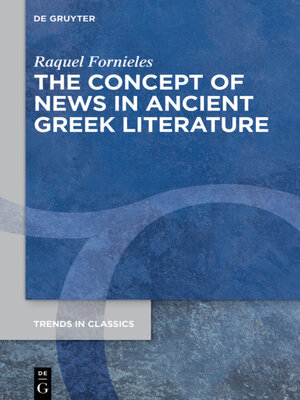The Concept of News in Ancient Greek Literature
ebook ∣ Trends in Classics--Supplementary Volumes
By Raquel Fornieles

Sign up to save your library
With an OverDrive account, you can save your favorite libraries for at-a-glance information about availability. Find out more about OverDrive accounts.
Find this title in Libby, the library reading app by OverDrive.



Search for a digital library with this title
Title found at these libraries:
| Loading... |
The concept of news that we have today is not a modern invention, but rather a social and cultural institution that has been passed down to us by the Greeks as a legacy. This concept is only modified by the social, political, and economic conditions that make our society different from theirs. In order to understand what was considered news in Ancient Greece, a lexical study of ἄγγελος and all of its derivatives attested in a representative corpus of the period spanning from the second millennium BC to the end of the fourth BC has been conducted. This piece of research provides new contributions both to studies in Classics (there are hardly any studies on the transmission of news in Antiquity) and in journalism. This study also reveals an interesting point: the presence of false news – similar to current fake news – in ancient Greek literature, especially in tragedy and historiography when it comes to the use of the derivatives of ἄγγελος.






